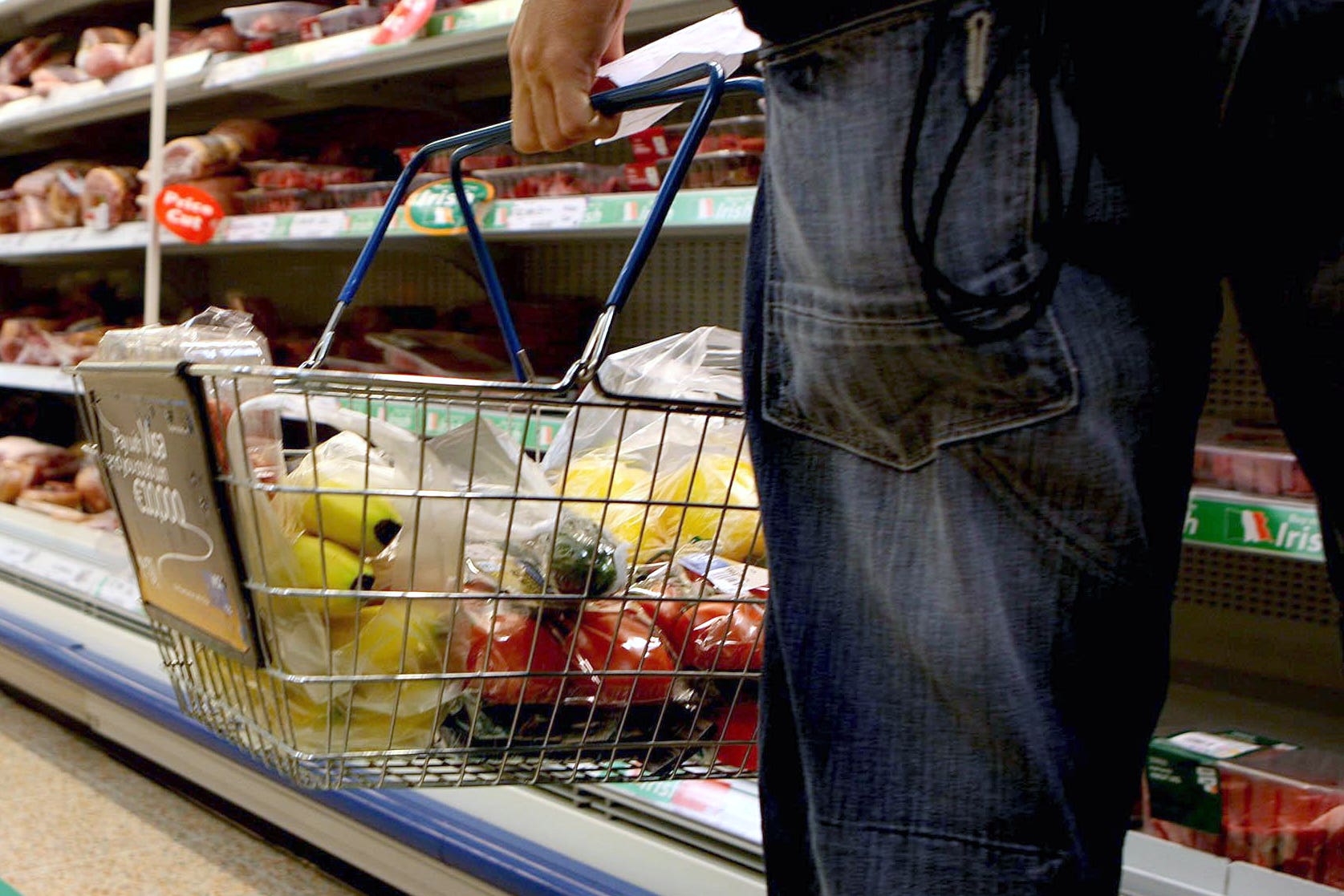No economic growth forecast until next year as outlook ‘exceedingly uncertain’
The Scottish economy is forecast to shrink by 0.7% in 2023.

Scotland will have to contend with high inflation throughout 2023, an economics expert warned – with “significant price rises” particularly for food “continuing to put pressure on household budgets”.
Professor Mairi Spowage, director of the Fraser of Allander Institute think tank, said the economic outlook is “exceedingly uncertain”.
Prof Spowage commented as the institute published its latest economic commentary, in which is said GDP would not return to growth in Scotland until 2024.
The latest forecast is for Scotland’s economy – which narrowly avoided recession in 2022 – to shrink by 0.7% in 2023, which is an improvement on the previous forecast of a contraction of 1%.
Growth of 0.9% is now expected in 2024, with this uprated from the previous forecast of 0.6%.
The Deloitte-sponsored forecast however said: “The economic backdrop is volatile and highly changeable. This has been demonstrated by February’s unexpected increase in inflation to 10.4%.”
Angela Mitchell, senior partner for Deloitte in Scotland, said the appointment of Humza Yousaf as First Minister is an opportunity for a “relationship reset” between business and the Scottish Government.
She described Mr Yousaf taking on the top job as “one of the most significant developments in Scottish politics for a decade”.
Meanwhile, Prof Spowage warned: “High inflation will be with us throughout 2023, and although we still expect it to come down as we compare to the much higher price levels of 2022, significant price rises, particularly in food, are continuing to put pressure on household budgets.”
She said that while the Bank of England’s approach to setting interest rates “may be softening”, it may still have to raise interest rates further to “deal with persistently high inflation”.
The latest commentary came just after an earlier report told how challenging economic conditions could “stretch into the summer of 2023” – with the EY Item Club Scotland forecast also saying the country would not return to growth until 2024.
It projected that gross value added (GVA) – a measure of the value of goods and services produced – will fall by 0.6% during 2023, before the economy returns to growth again next year.
GVA is forecast to rise by 1.6% next year, and will then return to pre-pandemic levels in 2025.
That comes after the global economic outlook “deteriorated significantly during 2022”, thanks in part to surging inflation and hikes in interest rates – which reduced consumer spending as well as business confidence.
But the report added that “fortunately, some global headwinds are alleviating”, noting that energy prices – particularly gas prices – are now “way off their summer 2022 highs”, while global supply chains are said to be “returning to normality”.
Inflation is “likely to fall markedly during 2023”, it added, saying as a result the UK economy could return to growth in the second half of this year.
They also suggested the Bank of England’s monetary policy committee could cut interest rates before the end of this year.
Ally Scott, EY Scotland regional managing partner, said: “While challenging conditions are expected to stretch into the summer of 2023, we are starting to see signs in a number of areas which give cause for optimism – energy prices are falling and the economy has proved to be more resilient than expected.”
He said a return to growth is forecast for 2024, but Scotland would “continue to face some long-term challenges in demographics, such as the profile of our working-age population”.
He also stressed the need to “create an economic environment which inspires confidence to invest and grow differentially once more”.
Sue Dawe, head of financial services at EY Scotland, said economic conditions have been “up and down since the middle of last year”, with the expectation being that consumers will “make more use of savings accumulated during the pandemic throughout 2023”.
But she added: “Net savings are a diminishing asset, especially in a year in which borrowing has become very expensive due to higher interest rates.
“That said, recent declines in some prices suggest that inflation will weaken during this year and, if it falls as quickly as the EY Item Club expects, there is a good chance interest rate cuts may be on the menu by the end of this year.”
A Scottish Government spokesman said: “Scotland continues to face extremely challenging economic conditions which are affecting livelihoods and lives. UK Government policies – including Brexit – have made the cost-of-living crisis worse.
“However, as this report highlights, Scotland performs well in a number of key growth sectors and also in attractiveness to inward investment. Latest data shows GDP in Scotland grew by 0.9% in January and, alongside improving consumer sentiment and near-record levels of employment, the economy is resilient.
“It is encouraging to see the report recognises the opportunities presented by the transition to net zero, which the Scottish Government has prioritised as part of our National Strategy for Economic Transformation.”
Scottish Secretary Alister Jack said: “The UK Government is taking action to achieve the Prime Minister’s priorities of halving inflation, reducing debt and encouraging growth.
“Last month the Chancellor delivered a Budget for sustainable growth, alongside further cost-of-living support and an extra £320 million for the Scottish Government to support public services.
“Our Levelling Up agenda is encouraging growth at the heart of every community in Scotland and throughout the UK with more than £2.2 billion invested to create and sustain high-quality jobs, and two new freeports progressing in Scotland will boost trade and further investment.”
Subscribe to Independent Premium to bookmark this article
Want to bookmark your favourite articles and stories to read or reference later? Start your Independent Premium subscription today.
